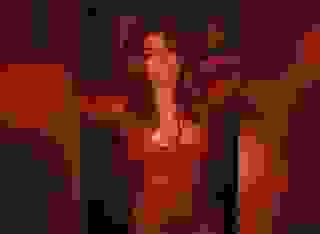Note: You can change font size, font face, and turn on dark mode by clicking the "A" icon tab in the Story Info Box.
You can temporarily switch back to a Classic Literotica® experience during our ongoing public Beta testing. Please consider leaving feedback on issues you experience or suggest improvements.
Click hereBankers do the same, Rebecca had said on the jetty, balancing the odds of success against failure. They never rely on chance but study the trends, just like William Archer studied the winds and the form of the opposition. He judged his responses so that he could always appear hidden within the general field of ordinariness. When he could no longer disguise his superiority in one field of competition, he moved to a new field where the competition and, more importantly, the promoters and wager takers were strangers to him.
Bankers rely on being better informed than their competitors and able to better target markets or determine likely margins before they even plan their ventures, and keep their information fresh with regular updates of information. And then employing the best Captains and vessels for their ventures.
They find out the information they require through agents, continually monitoring and updating, so are aware of the dangers and pitfalls, the likelihood of success and the value of a market before committing investments to it.
My father, Rebecca said, would had made a fine banker, and still could be, if he would give up the irksome duty of King's Reeveship of Bartonshire, a role which he did not seek.
Even as a small girl, Rebecca had known that she was destined to end in running her father's bank, being an only child of a father too broken hearted over his loss to consider remarrying.
So she had studied this young man, this inveterate archer, almost a boy himself, only five years older than the girl she was at the time, with interest.
Merely a bowmaker and seller, without any one real home for three quarters of the year, he banked such an accumulation of loose coin so large that she suspected he must be a robber outlaw and that these regular bankings were his highway pocket pickings.
Her father Jacob had laughed at her fears and explained that the entirety of his fat purse was indeed made up only partly from the sales of his bowman wares. And those sales were wholly dependent upon the demonstration of his competitive success on the archery field, making up the second part of his income by his prize winnings. More was gleaned from his third source, calculating the return from his odds by winning wagers from bookkeepers who rated him as a complete outsider.
Rebecca was so interested by Will Archer that she looked out for him whenever he called and engaged him in conversation. Although reserved and reticent at first, he relaxed in the informality of her youth and opened up a little more, and she was always fascinated by his stories of life on the road.
He thinks like a banker, she told me, and we have that in common, even though my father always seemed to regard her as a child all the time he called at her father's bank. She couldn't help but notice that he was always a serious man, sad even, as though he was carrying a burden almost too heavy for him. He only spoke of his parents and a fisherman cousin, never of a lover. He didn't appear to have a wife and made it very clear that he wasn't romantically interested in Rebecca, even though she was, visit upon visit, growing into an attractive woman.
She looked at me with a frightening and honest intensity and admitted that for so long she was full of desires for him, yet he remained only friendly and ignored all her womanly signals.
I had felt I was the child then, much as she must have felt. Rebecca is a dark haired beautiful woman, who commands respect from anyone who deals with her. Indeed, she has that same steely determination and charisma that my parents have: individually they are as cold steel managers of their destiny, yet they soar like flaming comets in each other's company.
Rebecca has that same isolated steely sadness that my father had when I first met him in that archery field outside Bartown. My heart goes out to her.
"I spotted him once in the bath house at our home in Lincoln, purely by chance you understand," she had said, colouring slightly, in her continued confession of her feelings, while speaking on the jetty, "and I saw his betrothal ring on a thread around his neck, held close to his heart, yet hidden from the world he found too empty to engage in emotionally.
"I knew then that I didn't have a chance of sharing a life with him. I knew that the only place I would ever have a finger hold in his heart is that of the sweet but slightly irritating limpet-like child daughter of a dear friend.
"Then, when Jacob was told that your Inn's well had collapsed in the flood, all those years ago, Will shyly asked Jacob to intervene on his behalf, yet keep his name out of it. Not the normal reaction of an inveterate investor, and nor remotely normal were the terms of his offer: he was not interested in the receipt of interest for his investment, he was happy for it to be an anonymous gift of charity.
"Bankers are nosey people, Robin, we love to know other people's business, looking for ways to use what we know to our advantage. We cannot help ourselves. That's when my father found out his connection with Alwen. My father developed a relationship with your family, which has endured way beyond purely the conduct of business. I think Jacob regarded William as the son he never had, and I think Will felt a little of that too, since his own father was shut off to him for much of the year.
"And it was Will and Alwen only that saved our lives, when we had no one else to turn to. He must have thought he had lost his nest egg after the Church and Crown had confiscated our bank and seized all its known assets. No one else, of all our friends and business partners, dared lift a finger to help us, unless it was to exploit us, until first Alwen gave us sanctuary, and before Will arrived to get us out of the situation we found ourselves in."
So now, on Rebecca's heartfelt plea, I willingly accompany Lady Elinor to her mother's home, in some place that I have never heard of, Pitstone in the Shire of Buckingham, and on the very same terms my father was willing to apply to Alwen.
Perhaps, some of the feelings I feel for Elinor, feelings beyond my control, are like those my father felt for Alwen and Rebecca for my father. Am I too, destined to spent much of my live as a sorrowful and isolated loner, pouring my heart and soul into my chosen trade?
By the time the sun creeps up over the horizon behind us, we are in London and the sailors of our Venetian galley haul down the sails and cheerfully put their backs into using the oars to manoeuvre their vessel into the dock, just after dawn. It is so early that I have to wake the Lady Elinor in the cabin. She looks so peaceful laying there that I watch her breathing for a minute before reaching out and shaking her gently on the shoulder.
"We are here, Lady Elinor," I say as she wakes, rubbing the sleep from her eyes. "I will be waking up Hugh in a moment. Did you sleep well?"
"Yes, I did, it was a lot smoother than than our first sail! I think I slept like a log."
"So did I," says Hugh at the doorway, "I didn't wake until you two started shouting at each other."
"We haven't been shouting," Lady Elinor laughs, "that was all those crystal glasses of wine you were drinking at Rebecca's yesterday."
"Well, we never have wine at home, and that wine was like nothing I've ever tasted before."
"Well, you can have wine every time you visit my hostelry!" she laughs.
"Is that an invitation?" Hugh asks, "because having been abroad for the first time in my life and having a whale of a time doing it, I think I would love to visit your estate in Breton. Do you know if you have vineyards? Er, where is Breton, exactly?"
"It's Brittany, you fool, to the east of Normandy," I point out. "He was always hopeless at geography, Lady Elinor, even though our teacher, Father Andrew, had been pretty well everywhere in the world, except perhaps China, in his time."
We transferred to a much smaller rowboat. We didn't have to do anything but admire the scenery. London dwarfed even Brugge! As soon as we rowed deeper into the port of London, with all its sounds and stench, we were pulled to the bank and met on the jetty by a Monk dressed in black robes.
"A Black Friar!" exclaimed Hugh, remembering Father Andrew describing some of the Monastic Orders he had encountered.
"Welcome to London, my Lady Elinor of Pitstone, I am Brother Ranulf de Temple, of the Canons Regular of Saint Augustine order. We, young fellow," he added as he turned to Hugh, "are known as the Black Canons, from Aldgate Priory. I was asked to meet you by your friend Rebecca, I am your guide up to Buckinghamshire, or wherever your quest takes you. Come this way, we have a selection of suitable mounts ready for you and have time for refreshments and a swig of holy wine before we leave."
"Wine?" Hugh asks, "I love wine."
"Certainly, we have wine," the Canon Brother smiles, waving his arm in the direction we are to go.
The mounts are indeed big, strong horses. No sooner are we mounted, then the Black Canon gives the order to commence riding. We are accompanied by two Augustinian Canons, each with broadswords discreetly strapped to their mounts. I took heed of such preparedness, strung my bow and slung it on my back, and buckled a quiver of arrows around my waist, to the Augustinian Canons' approving nods.
"These horses are used to travelling a dozen leagues a day, but we will have a stop at the Priory of St Albans to change horses and refresh ourselves. You are not as used to travel as some of us, so we will let the horses take the brunt of the strain, but you may well be sore after such a ride. We should arrive in Pitstone late afternoon, maybe, but certainly before dark."
I appreciate his frankness. Most of my horse riding has been on short journeys, so a ride from London to somewhere in Buckinghamshire would have seemed impossible a week ago, but in the last few days I have crossed from the centre of the Midlands to the coast, crossed the English Channel twice, and up the long river Thames to London. So the ride is no longer so outlandish and I look forward to it. As I glance at Hugh and Lady Elinor, their eyes are bright with excitement too, with the anticipation of adventure, so we are eager to start.
By the time the sun reaches its zenith, I think I have reached my own high point and beyond. My bum is numb, and has been for some time. I don't think I could get down off this giant horse, by my own means, even if I wanted to. I might fall down though, but I cling on, if only to avoid the shame.
I have been riding beside Lady Elinor, talking to her until my voice is hoarse, in order to keep us both awake but I have run out of idle inanities to speak of.
She tells me much of her older sister, Jane Elliott, who was born sickly and undersized, but always looked after the growing Elinor, living in their little inn, mostly frequented by shepherds and husbandmen and a few passing strangers. The poor girl Jane was taken by a fever when she was about twelve and Elinor barely six, and she says still she misses her sister terribly.
I know we three have all been through the wringer these last few days. The seasickness must have taken some of our strength out of us, but she has expressed her determination to get to her Mother's Inn as soon as we can. We believe the danger we are told she is in. If there is such a plot against the King, the traitors would want to use any means they can to discredit the old King and make their new-made king a paragon of virtue in comparison.
I speculate on who would take part in such a rebellion but, in my limited experience of the world outside my village, I cannot think of anyone.
I know the King, not well, but met him thrice in the last year. He is not an immortal, as some would have it, but a man of flesh and blood, much older than my father, in his fifties I would think, but still broad and stocky, a man full of much vigour, loud and commanding.
In those few times I have seen him, I have grown to like him, as any loyal subject of England would, and understand why he has such a following, despite stories of his cruelty. I suppose to hold onto power, Kings have to have many sides to their character.
As for Hugh, he rides up front with the Canon Brother Ranulf, who drives us on to greater efforts. The other two Canons bring up the rear. Hugh, who has hardly ever sat upon a horse until two weeks ago, rides like a natural and, having recovered from his seasickness before everyone else, is eating bread and cheese and meat and sweetmeats as if he were a royal himself!
And I know his energy impresses Lady Elinor. Why am I so envious of him and all his antics and comments which make her laugh so?
I cannot be so frivolous as he who has no responsibility. I am the one obliged by honour on our mission. Canon Ranulf may be arranging our journey, sent as one of Rebecca's agents, but I will be the one who must decide what to do if Lady Elinor's mother is missing from her home. Where would the Count take her, if he has seized her? I do not have any idea, though I rack my brain throughout the day. The only point of reference I have is that he was staying with Lord Wellock at Wellock Brigga. That would be a place to try but it would take us two days to get there.
But we could travel through Oaklea. Something inside me urges me to show Lady Elinor the place I grew up. I am proud of the way Alwen, mostly, and Will in his turn, have made the village such a pleasant place to live. From there we could reach Wellock Brigga in a hard day's ride.
The Canon Ranulf holds up a hand.
"Ahead is our monastery at St Albans," he cries, "here we change horses and rest for an hour, but no longer."
Lady Elinor slaps me on the arm with her riding crop, "Hey, you've been so quiet, I though you were asleep. I'll race you to the friary!"
And with that, she whips her horse and gallops off down towards the distant gate. I didn't need any more urging, I dig my heels in and gallop after her!
We exhaust all that energy, however, long before we arrive at Pitstone by late afternoon. There is no sign of the Lady Elsbeth Elliott at Pitstone. Lady Elinor is beside herself with worry and cannot bare to sleep or stay the night.
I look appealing at the Canon. He nods in unspoken agreement.
"Then we ride North immediately, my Lady." Canon Ranulf says. "We backtrack our way to the main road before dark, then we drive onto the priory in Lichfield. There we may find news."
We all agree. Staying here, asleep, while our mission develops beyond our control, is simply not possible. We have come so far, but onward we must!
22.
Pastoral
(Lady Alwen Archer of Oaklea, pregnant wife of Will Archer, narrates)
I have found it painful in my back to mount a horse now. I believe the child I carry will be either too big to bear by the time of birthing, or else he or she presently swims in a pool that strains full at the dam. So I now walk everywhere by foot. But then, everything that I need is nearby and interconnected as if by tapestry threads
My Manor House is but a few hundred yards beyond the village, on a slight rise, with a sloping lawn down to a fish stocked lake behind, formed by yet another dam across the stream. The fish is essential for our observation of eschewing meat on Fridays. That stream eventually feeds into the river Bar.
Here, though, it is naught but a brook at the foot of our valley, although some leagues down stream, various tributaries join with it, to form into a fine river, running past the hill in Bartown, where my husband Will Archer has his Castle.
My Inn lies next to the stream, which was forded many years ago by the old road to Bartown. The ford was first causewayed in wooden logs by my grandfather, which has lately been rebuilt by me as a bridge in stone. The inn, with its deep well for fresh water, is but five hundred paces from my threshold. Behind the inn, is a new water mill, with a mill pond and mill stream leading from the river, to drive the wheel, rotating the millstones which either cracks the barley malt for the brewing of ale, or adjusted tightly to grind the flour for the needs of our daily bread. Close by is my much enlarged brew house, which has its own well, and behind that is my dove cottage, which I check each day, to feed, water and clean, so the pigeons therein prosper in comfort.
Our stone built village church is at the top of the hill, five hundred yards the other side of the Inn. It is small but it fits our needs. It is quite a climb, but between the church and the smithy is the bowmaker's workshop where my husband Will can oft be found, at least when he is not playing the role of Shire Reeve, and where my adopted son and half-brother Robin is apprenticed to the arts of archery and bow making.
Within this cluster of buildings so important to me, Oaklea is a little paradise, except when war comes to call. And it is calling now for the second time in nearly twenty years.
I have a separate narrow path from the Manor to the brew house, which runs parallel to the road, with a pair of footbridges over the river and mill stream. From that path I see a crowd of Knights arrive and be turned away by my capable Inn Steward, Stephen of Gloucester. I think with pleasure that the Inn must be full, probably of people fleeing the sacking of the city of Chester by the Welch Prince of Powys, and the consequential laying waste of the land throughout Chestershire.
I am tired and leave the brew house shortly past lunchtime, having seen the second set of drays for the day sent off up the hill and past the church towards Bartown.
I lock up and leave before the early morning drays are returned, too weary to even await the news of my husband, charging the departing draymen to ask the returnees to drop by the Manor House with any verbal recounting of the events at Bartown.
My husband is a private man, who will not answer my letters in kind, in case the parchment passes on the plague that still rages there. But he reads my letters immediately, my brewers always remark, and tell me that all his worries drop from his face while he does so.
On my way home, I am going as fast as my enforced waddling gait will allow. I want only to get my weary bones to my house for rest and, rather more more urgently, the use of the privy. I seem to need the privy much more regularly with the baby pressing so on my bladder.
The Manor House is not as grand a house as it sounds, it is just a single hall, with two upstairs rooms reached by ladder, one of them freshly kitted out as a nursery. Robin still has his old room at the inn, which has resorted to permanent use since the nursery is required. And I still keep my old Mother's tiny room for my use from time to time, for when I am too tired to go home, especially if my home is empty when Shire Reeve duty calls Will away to the Castle.
I do keep two maids at the Manor House, with only young Maggie living in, sleeping downstairs in a cot at the back of the hall. Outside is the small bake house and kitchen, with my privy nearby.
We rarely entertain at home, preferring a quiet country life and our own company, but we have the large hall at the inn, should we need to host a gathering.
The original Lord of the Manor, a Norman baron who was granted the estate after the Conquest, seldom left his Norman estates, so he never enlarged the old Saxon hall while he lived. So it is left discretely behind an adequate screen of a small wood. We love the quiet seclusion and privacy, Will and I.
My thoughts always return to my husband. And that makes me think about his situation, making my minor discomforts pale in comparison. Yesterday, one of my drivers, Godfrey of Mill Lane, shared with me that the soldiers on the gate were getting younger every day, that even young Bartholomew Tanner was manning the gate for his first time, meaning that now his mother Maudie has three children that are made temporary soldiers already.








